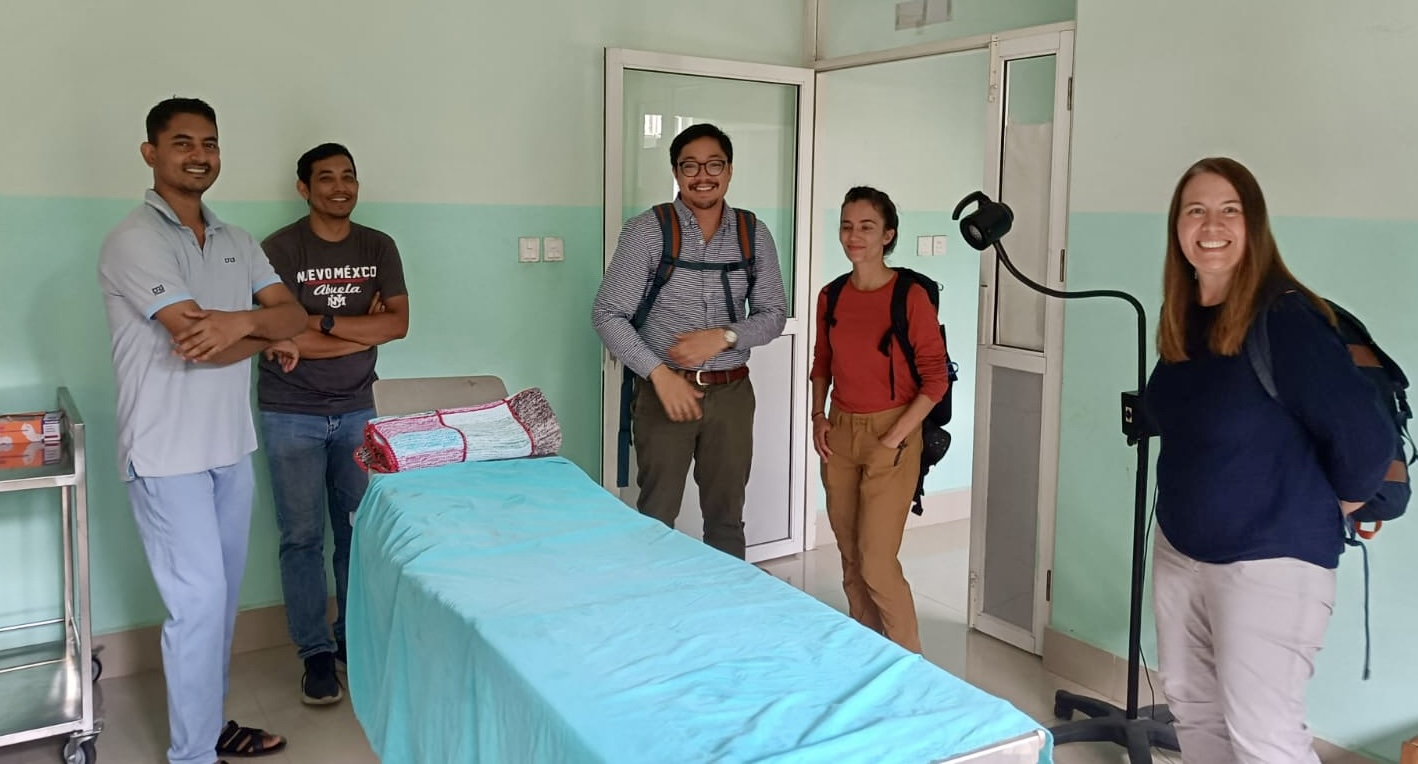
Rose House, MD, MS, right, and her team conduct a needs assessment at one of the rural health facilities participating in Project ECHO.
Our AMPATH Nepal partnership has launched a new program to improve access to emergency care in remote regions of Nepal. Through a transformative model called Project ECHO (short for “Extension for Community Healthcare Outcomes”), Nepal’s health workers will learn from and collaborate with experts in emergency medicine (EM) from around the globe.
AMPATH Nepal includes Dhulikhel Hospital, Kathmandu University School of Medical Sciences, and Mount Sinai as the lead partner for the AMPATH Consortium of 18 universities around the world.
The Need to Grow Emergency Medicine Capacity in Nepal
Though some general practitioners in Nepal receive emergency care training as part of their residency, there is a gap when it comes to formal, specialized EM education, especially in rural areas. Health care providers often lack the training and experience to effectively manage emergency situations. Rural areas face additional hurdles, like difficult terrain, long travel times to referral hospitals, and financial constraints that hinder patients from accessing advanced care. As a result, health care workers must often make critical decisions with limited resources, sometimes with little support or guidance from more experienced professionals. Through Project ECHO, AMPATH Nepal will start to fill this gap.
Bridging the Health Care Gap with Project ECHO
Project ECHO is about breaking down geographical and resource-based barriers to expert medical knowledge. It was born in 2003 at the University of New Mexico Health Sciences Center with a simple idea: empower health care providers in underserved communities by connecting them with expert teams through videoconferencing. Providers in rural or underserved regions—referred to as “spokes”—are linked with specialist teams, or “hubs,” located in regional, national, or even global centers. As a platform for long-term continuous learning, case discussions, and expert consultations, ECHO helps bridge gaps in education, reduce isolation of rural health care workers, and improve patient care.
The ECHO model has reached more than 900 partners and 1.5 million learners across more than 190 countries, improving provider knowledge, patient outcomes, and cost savings. Project ECHO is a World Health Organization collaborating partner to enhance community emergency preparedness and response globally.
Launching the Nepali EM ECHO
Our first step in launching an EM ECHO involved a comprehensive needs assessment. By engaging with rural communities and health care providers, we identified the most common and complex cases encountered. The needs assessment also evaluated local resources, internet connectivity, and the existing health care protocols to ensure the model’s success in rural settings.
Based on these needs, the capacity of the outreach centers, and desired topics of discussion, we tailored our ECHO education sessions to local realities, focusing on the topics that will have the greatest impact. The curriculum will focus on urgent topics and foundational EM skills, including critical areas such as airway management, breathing, and circulation (the ABCs of emergency care).
Local and International Expert Engagement
A key aspect of this initiative is the involvement of both local and international emergency medicine experts. Local specialists from Dhulikhel Hospital play a crucial role in leading and guiding the ECHO sessions. Faculty from the Icahn School of Medicine at Mount Sinai are also lending their expertise to further enhance the program’s impact.
A Critical Step Forward for Nepal’s Health Care System
The launch of Project ECHO for Emergency Medicine in Nepal represents a critical step forward in the country’s health care development. By leveraging technology and expert collaboration, we can overcome many of the challenges facing rural health care providers, empowering them to deliver better care in even the most remote areas. This initiative has the potential not only to improve patient outcomes but also to strengthen the capacity of Nepal’s entire health care system, serving as a global model to address challenges in emergency medicine training and education.
 Rose House, MD, MS
Rose House, MD, MS
AMPATH Nepal Partnership Director, Arnhold Institute for Global Health
Associate Professor of Emergency Medicine, Pediatrics and Global Health
Icahn School of Medicine at Mount Sinai
